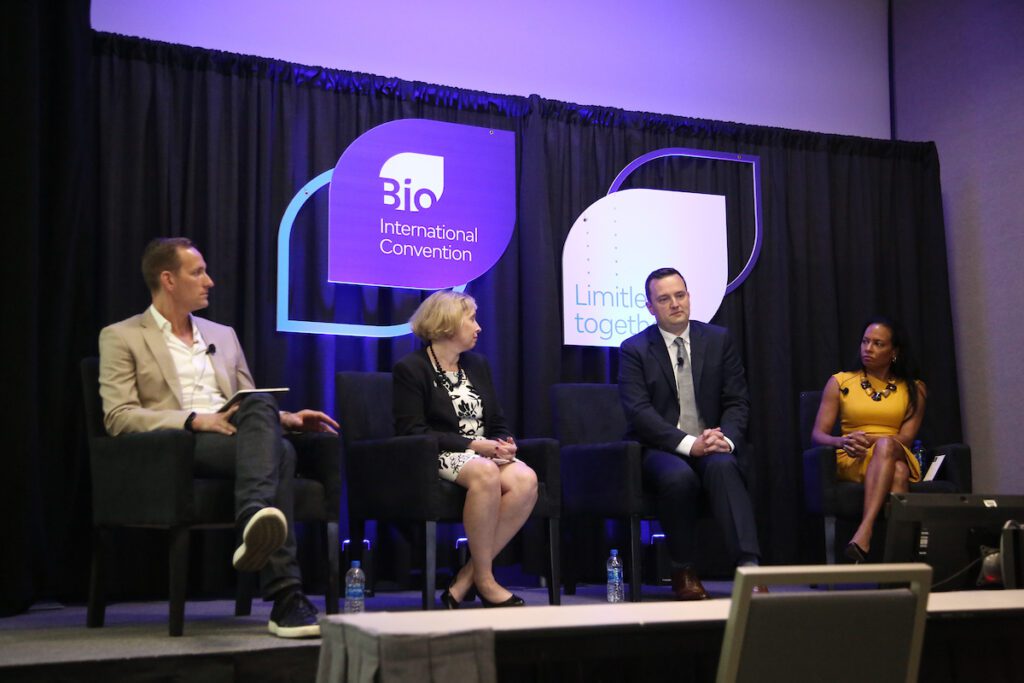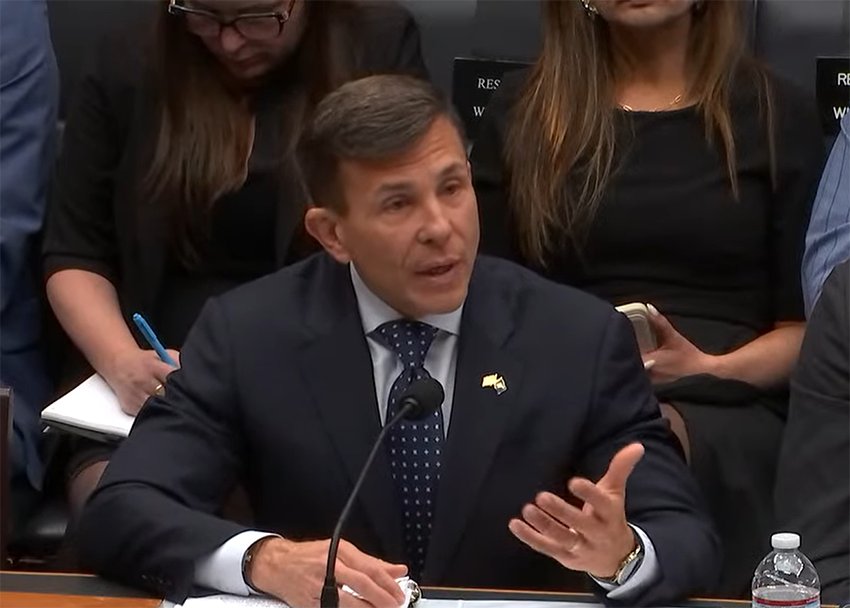The FDA’s Accelerated Approval Pathway must be preserved against current threats as it has been a lifeline for patients with rare diseases, life-threatening conditions, different types of cancer, or HIV/AIDS, a panel of experts at the BIO International Convention agreed today.
Moderated by Travere Therapeutics President & CEO Eric Dube, a session entitled “Fireside Chat: The Accelerated Approval Pathway and the Importance to Patients,” featured panelists Linda Goler Blount, President & CEO of Black Women’s Health Imperative; Pam Traxler, Senior VP at the American Cancer Society; and Michael Ward, VP of Public Policy and Government Relations at Alliance for Aging Research.
The Accelerated Approval Pathway, which has been around for three decades, has been under threat, on the federal and state level, according to Ward. He gave the example of the Center for Medicaid Services (CMS) decision to limit access to an Alzheimer’s treatment nationwide, and Oregon’s request that the CMS waive some coverage obligations, thereby narrowing access to medicines that received accelerated approval.
“The Accelerated Approval pathway has been a gamechanger for patients with HIV, multiple sclerosis,” said Dube, underlining that awaiting the outcomes of the full regulatory process is not always feasible for patients with rare, life-threatening diseases.
Around 50% of accelerated approval medicines are for cancers, according to Traxel, who said the majority of cancer patients are facing a shortened lifespan, so these drugs offer the possibility that they can live longer than expected.
Access issues
Blount said an important issue is access to accelerated approval medicines. She noted there is a racial gap in accessing clinical trials for accelerated approval candidates, and the high price or difficulty of obtaining some accelerated approval drugs mean that only those with sufficient resources will get the medicines.
Blount noted that women in the African-American and Latin communities are the least likely to get access to HIV prevention therapy, and that the average Black person waits between 7-10 years to be diagnosed with a rare disease.
These barriers, the panelists agreed, can only be overcome through policy and practice. To move forward, the FDA must enforce diversity in clinical trials, panelists said.
Traxel urged patient advocates and biopharma to tell patients’ stories, talk about what the medicines mean to them and drive the story around the patients.
“Each and every one of us is a patient in one way or another,” she concluded.




